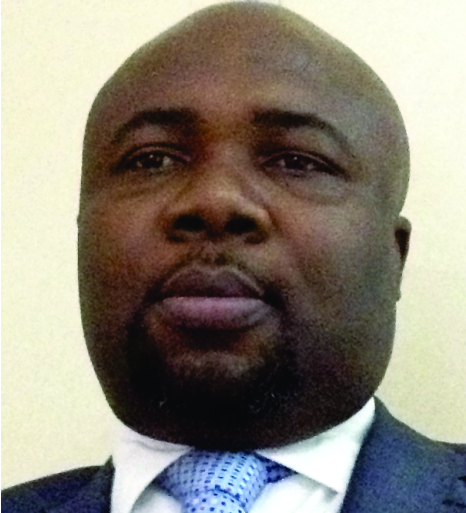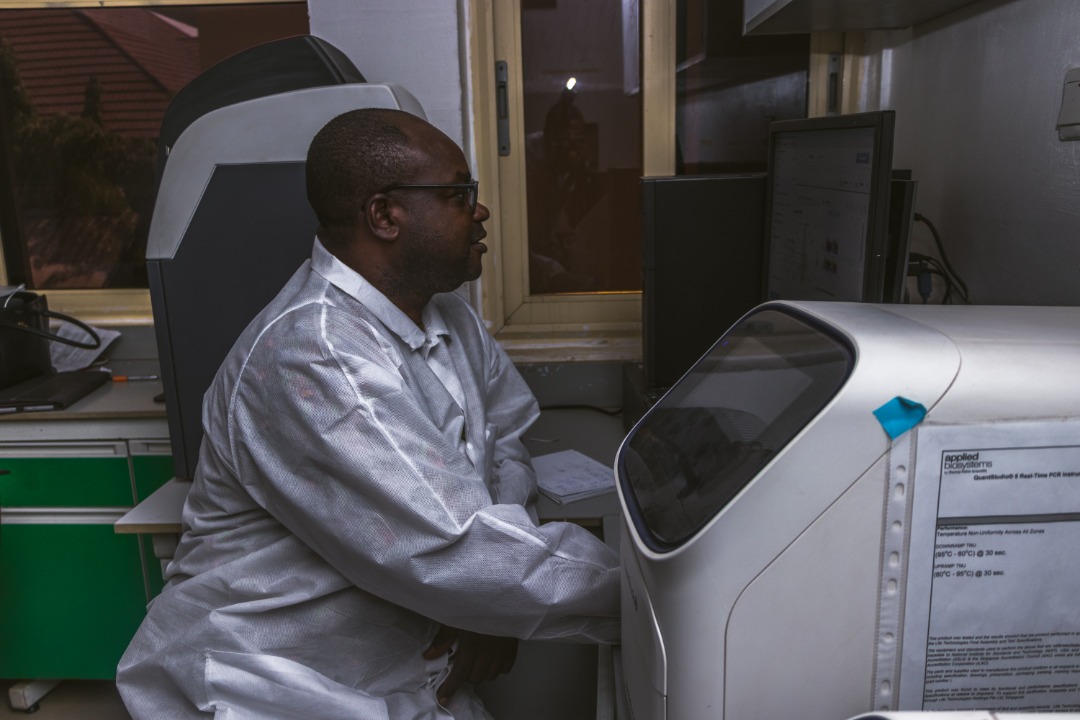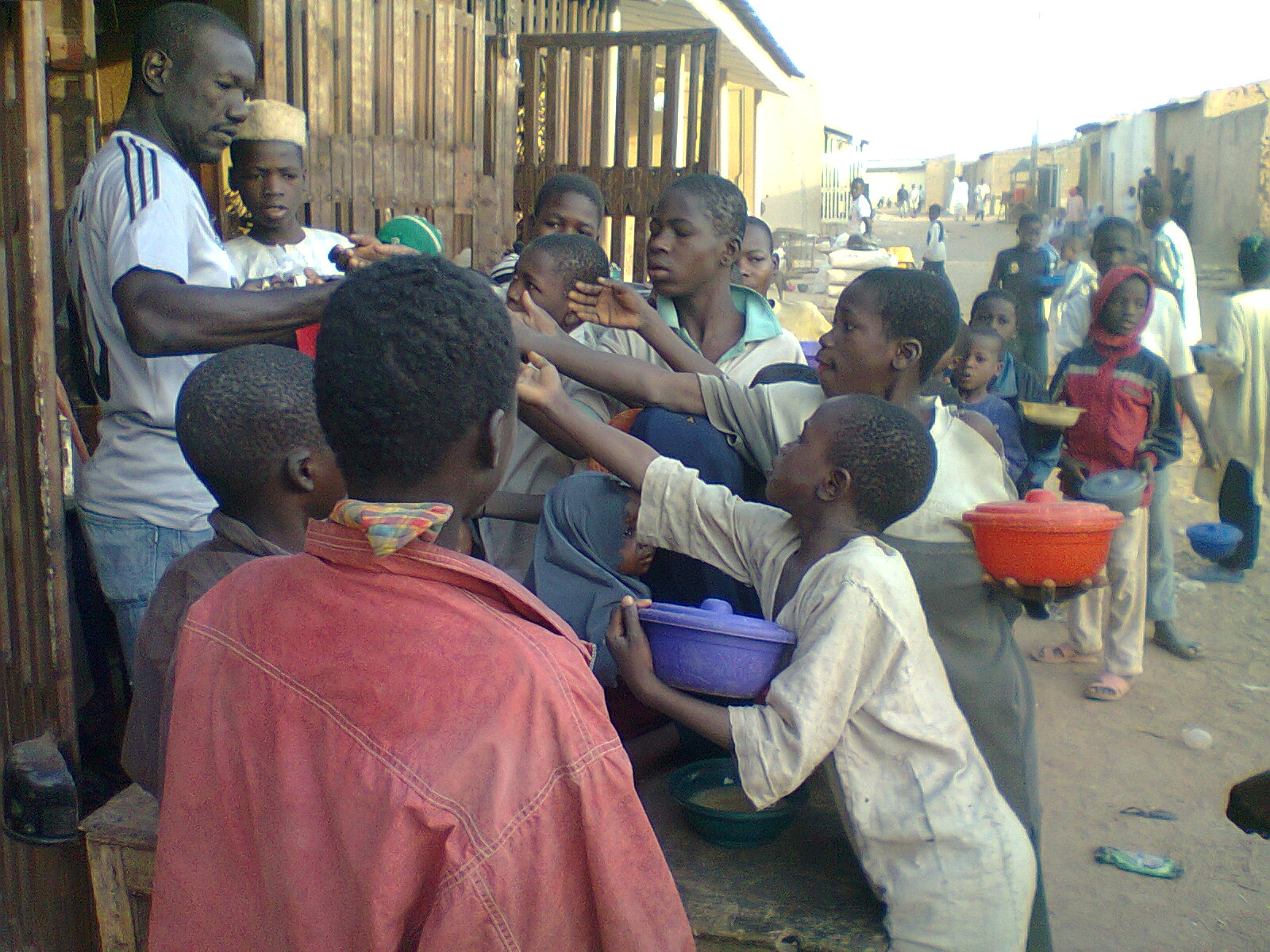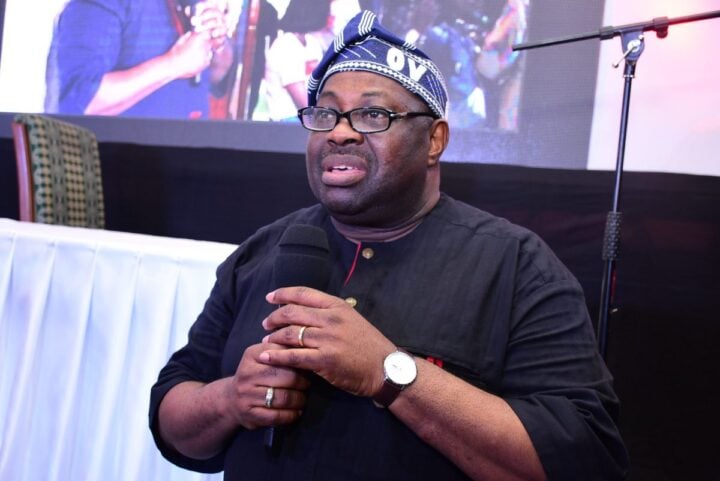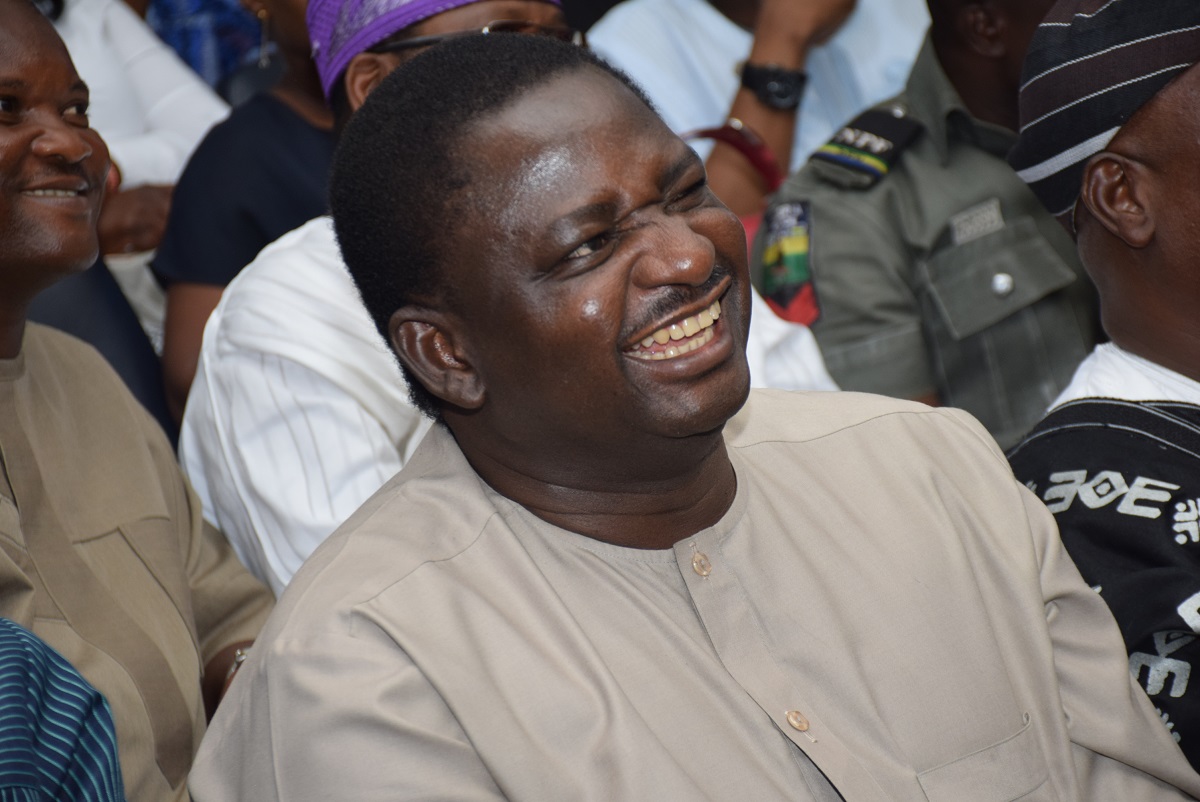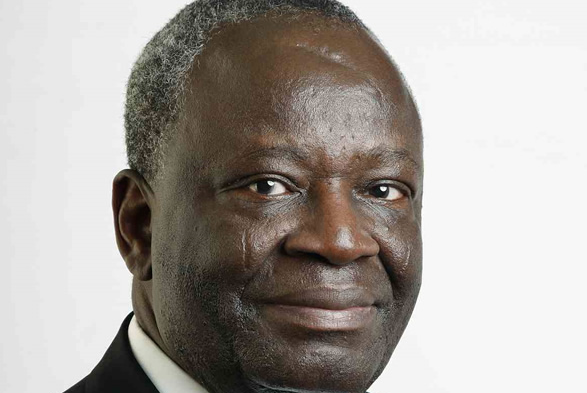It is no longer in doubt to anyone that the Covid-19 pandemic has caused a grave devastation of many economies, and disrupted the way nations, their citizens and businesses conduct their affairs. Several media talks, meetings, discussions, seminars, and conferences have been held and are still being held (online and offline) in dimensioning the scope of impact, the consequences, and possible solutions to the enormous adverse socio-cultural and economic effects of the pandemic.
I was privileged to be invited as a panelist in one of such robust conversations – a recent special zoom meeting sponsored by the Transform Nigeria Citizens Initiative and the Concerned Nigerians Forum – in which we engaged Prof. Chukwuma Soludo (one of the world’s best heads in Macro-economics) in discussing the best strategies Nigeria can employ in weathering the storms of the pandemic. The focus of my presentation in the conference was on the underlying opportunities that are staring Nigeria and Nigerians in the face in the midst of the pandemic.
The saying, “never let a good crisis go to waste” attributed to Winston Churchill is very apt at this time. There are always opportunities in every crisis, and it takes discernment and transformational leadership to explore and capture them. I am therefore very convinced that as the Covid-19 pandemic has (like similar challenges in the past) exposed the many vulnerabilities of the Nigerian system, especially the unsustainability of our economic and governance practices, we have another special opportunities to reinvent, reconstruct and reposition our economy, businesses, finances and other important aspects of our lives. I will share ten(10) such opportunities in the following paragraphs.
1. Weaning Nigerian Economy From Oil Dependence
Advertisement
Despite the fact that the oil and gas sector contributes only about 9 per cent of Nigeria’s Gross Domestic Product (GDP) by composition, crude oil exports alone constitute over 90 per cent of Nigeria’s foreign exchange earnings while revenue from oil and gas sales contribute over 50 percent of the nation’s annual budget revenue figures. In fact, if you build in the tax and similar revenues from oil and gas and associated activities by businesses, one could safely say that oil and gas sector contributes over 60 per cent of the nation’s revenue for funding her budget. This is a worst form of the popular “Dutch disease”, and clearly shows how Nigeria’s successive governments have lacked the vision and capacity to enhance the capability of the remaining sectors of the economy that make up over 90 per cent of its GDP to contribute meaningfully to creating economic prosperity and growth for the nation.
With Covid-19 nearly halting economic activities around the world resulting in an unprecedented crash in the demand for oil, global oil prices have seen their worst levels in decades. In fact, on April 20, 2020 the futures for crude oil US benchmark (the WTI) went into a negative territory – meaning for the first time in history, producers would pay traders to take oil off their hands. Nigeria’s crude oil benchmark (the Brent Crude) has been slightly luckier though prices crashed to as low as $19 per barrel before recently rallying towards $30 per barrel as many economies around the world begin to ease lockdown gradually.
Several factors, beyond the Covid-19 effects, which include the campaign for climate change initiatives, increasing demand for more fuel-efficient aircrafts by world airlines, electric cars and machines innovations, continuous improvement in the alternative energy sources, artificial intelligence (AI), and several other innovations that tend to reduce human activities, point to the fact that the future of oil as a major driver of human and industrial activities is bleak. The Saudi Arabia’s recent partial divestment in the world largest oil company, ARAMCO, is a strong indicator to this position.
Therefore, Nigeria can no longer afford to close its eyes and ears to the reality that oil dependence is becoming increasingly foolish and extremely risky. Every time there is an oil price shock/ crash, Nigerian economy goes into a recession, the government goes into massive unsustainable borrowing, and our currency crashes in value despite the wasteful interventions by the Central Bank. We can no longer pay lips service to economic diversification which we never take seriously once oil prices rally. Let a serious team be set-up with private sector participation to drive the economic diversification objectives as envisioned in the Economic Recovery and Growth Plan (ERGP) strategy. We must allow Covid-19 provide us the needed “anti-body” to cure our nation of its long-lasting Dutch disease.
Advertisement
2. Reconstructing Nigeria’s Fiscal Federalism
Covid-19 has presented Nigeria with another special opportunity to review and reconstruct our fiscal structures in the federal system of government. A system where the component states that make up the federation are not sufficiently motivated to explore all available avenues or sources to raise revenue while driving innovative and value-adding economic activities is hugely unsustainable and sub-optimal. Apart from the false financial security provided by the oil revenue to all the states of the federation (even when many of them have no business with oil for that matter), the tax accounting system seem to give no push for states to work very hard at generating internal revenues. In fact, states that do nothing at all seem to be rewarded for their laziness while the hardworking states have little or nothing to show for it. When most of state funds come from the “free” oil revenue, the nation murders innovation, creativity and the spirit of enterprise.
With Covid-19 rubbishing our nation’s dependence on oil revenue – as captured in point one(1) above, there is no doubt that Nigeria needs to now deconstruct and reconstruct our fiscal federalism in a way that would challenge the federating units to drive innovation, economic efficiency, and fiscal responsibility. States must be enabled to benefit somewhat directly from certain taxes and tariffs that today go solely to the Federal Government or are shared non-proportionately by all the states.
3. Enhancing the Economic Viability of Nigerian States
Advertisement
Following from point 2 above, Covid-19 has further exposed the non-viability of most Nigerian States. A recent report stated that state governments in Nigeria generate less than 25 per cent of their monthly income internally. In fact, there are a few states that depend over 90 per cent on the Federal Account Allocation Committee (FAAC) monthly largesse in order to meet their basic monthly expenditure to operate as a state. And as the monthly FAAC disbursements are declining to a dangerous level due to the very low oil revenues at this point, many states are likely to go totally broke.
We have seen many states, in the past, lining up to beg the Federal Government for bail out funds to meet even salary payments. Infrastructural developments in many states have become nearly non-existent. In a nutshell, most Nigerian states lack the capacity to meaningfully contribute to generating the kind of economic activities that would strongly support inclusive GDP growth as well as shared prosperity for the teeming population of Nigerians.
Nigerian leaders at all levels of governments must give serious thoughts on the way forward for our states. Do we reduce the number of states in the country? Or do we provide more incentives (as discussed in point 2 above) for states to drive revenue growth. Does the governance system in our states give room for fiscal responsibility and efficient financial management? Do the governors have the freewill and capacity to generate ideas to transform their states as economic giants? What constitutional amendments are required to empower our states to act in the overall best interest of the Nigerian masses?
4. Refocusing Human Capital Investment in Nigeria
Advertisement
Despite the huge resources Nigeria has generated over the years from oil revenue as well as several loans secured for national development, successive governments in Nigeria have paid grossly insufficient attention to human capital development – especially in the areas of health and education/ talent development. In 2018, Bill Gates, during a visit to Nigeria, noted that “Nigeria is one of the most dangerous countries in the world to give birth”. Our literacy, life expectancy, and other human development indices are nothing to write home about.
Medical facilities are very inadequate and obsolete; primary and post-primary educational institutions are grossly under-funded and in constant dire need of base infrastructure and tools; brain drain is taking a bad toll on teaching quality across all levels of education; corporate education and training is very poor especially among Micro, Small, and Medium Enterprises (MSMEs).
Advertisement
Over the years, Nigeria’s budget for education and health sectors (as a percentage of the total budget) have remained below 10 and 6 percent respectively. This is well below the UNESCO recommendation of 20 and 15 per cents respectively for the education and health sectors for there to be meaningful and inclusive growth and development of developing nations. And much of the budgets are for recurrent expenditures in these sectors with little or no attention for capital spending. No wonder our medical and educational facilities are horrible sights in most parts of the country.
With Covid-19 teaching us a very bad lesson on the need to make our hospitals standard for both the rich and the poor, it is now imperative that we sit up and fix these sectors urgently. When the chips are down – as they were in the peak of the Covid-19 pandemic – we would all depend on our local facilities to boost the health and lives of our people. So, from the health and education sectors all the way to hospitality/tourism and entertainment industries, the more we invest in our people’s health, education, living standards, and overall well-being, the better prepared we become in building a prosperous nation.
Advertisement
5. Attracting Quality Capital To Nigeria
The International Monetary Funds (IMF) in a recent comment on the global impacts of the Covid-19 pandemic suggested that China may face some kind of emotional and economic backlash as a result of the pandemic considering the global anger about the way they initially handled information concerning the virus which reportedly emanated from Wuhan in China. Again, it is generally believed that African economies are less devastated by the pandemic and therefore will emerge a less risky economic block post pandemic.
The combined implication of these two factors is that investors’ capital flow (both Direct and Portfolio capital) would most likely favour African economies. And Nigeria is still currently the biggest economy in African by GDP size. So, this presents another opportunity for Nigeria to reposition her economy in order to attract more capital – especially the Foreign Direct Investments (FDIs). Key areas of opportunities include: agriculture (particularly processing and post-harvest technology), manufacturing of various kinds of goods which hitherto were handled mostly by China, infrastructure development (using the public private partnership, PPP model), power and energy sectors, information and communication technology (ICT), among a few others.
Advertisement
To attract reasonable and sustained interest of global investors, Nigeria must urgently look into some crucial policy reforms that are badly needed or expected by investors, including: removing the multiple pricing system in the foreign exchange market while also ensuring transparency in foreign exchange allocations and management; ensuring market discipline in the money market; strengthening regulations in the financial markets generally; resolving the persistent insecurity and terrorist attacks on Nigerian cities; and enthroning good governance and policy consistency in public institutions.
6. Putting MSMEs on the Driving Seat of Job Creation
Nigeria’s government’s longstanding approach of driving job creation through government institutions is precarious, unrealistic, unsustainable, and a continual pain point for the economy. It has over time led to the multiplicity of government agencies or parastatals – with many of them doing nearly the same thing. Several ministries, departments, and agencies (MDAs) of governments are also unnecessarily over-staffed – promoting redundancies and inefficient use of human capital. And with Covid-19 impact on Nigeria’s budget revenue – with possible outcome of unpaid salaries – the situation is more than worrisome for job creation and human capital development.
Most developed economies depend hugely on small and medium businesses to generate high employment numbers. When the environment is right for businesses to thrive, MSMEs generate much more impressive employment numbers than any government can produce, and the multiplier effects are enormous. And with MSMEs, economic growth is more inclusive and more likely to bring improvement in living standards; that is, eradicating poverty.
Nigerian policymakers must utilize the Covid-19 lessons to give a renewed push to creating a very easy environment for businesses to thrive. From business registration, operating environment, infrastructure, multiple tariffs, unwieldy tax system, property rights, all the way to access to affordable credits, everything must be done to improve the ease of doing business as well as remove obstacles to the growth of MSMEs. The policy shift towards this must not only involve the private sector giants but must also be aggressive and goal-oriented.
7. Market Opportunities for Individuals and Firms To Invest
During crisis periods like this, many markets – particularly the real estate and the stock markets – experience some form of downturn which may be protracted. Prices of houses and company shares tend to decline – particularly at the point the economy moves fully into a recessive mode. And there is no doubt that the Nigerian economy would gradually contract into a negative territory post Covid-19 pandemic.
So, it is possible that prospective investors who hold cash at this point or period may be able to move into these markets at cheaper prices not possible before the pandemic. For a fact, the real estate and the stock markets remain the most potent avenues to create lasting wealth or passive income for business professionals as they plan for their retirement. However, proper knowledge of the markets as well as sound advice from real estate experts and stockbrokers are very crucial in any attempt to enter these markets both in normal and crisis periods.
8. Business Re-Engineering Opportunity
Covid-19 has shaken many businesses to their very foundation. Unfortunately, many businesses (especially small businesses) might close down or cease to operate as a direct consequence of the pandemic. While interest rates by commercial lenders continue to accumulate, many projects are shut down or unable to generate revenue to settle mounting debt obligations. Revenue levels for a few firms may fall below break-even points. For service firms, the usual cost-cutting exercise begins with staff rationalization or better still “right-sizing” (in many cases out of panic and based on wrong assumptions).
Yet in all of this, Covid-19 challenges many businesses to re-invent, re-engineer, rebrand, and regenerate themselves. Not a few businesses are currently adopting agility, innovation, and creativity in their renewed business models. New normal is the way forward now. Maintaining lean physical operations, working from home, exploring digital meetings and engagements, among other transformations are the order of the day. Even the supply chain is radically changing. Technology is urgently deployed by hitherto analogue businesses to improve their processes, systems, and people. Every business manager must take advantage of the new normal to re-jig and re-tool their businesses. Key question for every business is: what can you do differently?
9. Fasttracking the Route to the Export Market
Due to the impending scarcity of foreign exchange occasioned by the Covid-19 on the Nigerian economy – as a result of the crude oil price crash – there is an urgent need to revisit, in a more organized manner, the issue of diversifying the Nigerian economy away from oil revenue. There is no doubt that Nigerian businesses have a great deal of opportunities for export in various sectors, particularly agriculture (crop production, animal husbandry, and agro-processing), manufacturing, financial services, entertainment, tourism, education and training, among others.
However, one major obstacle in generating sufficient activities in the non-oil export segments of the economy remains the seeming “mystery” surrounding the export process in Nigeria. In addition to the bureaucracy in the export processes in Nigeria, there are also issues with lack of education and training which expands knowledge and facilitates the export processes. Many businesses – especially small businesses – lack the requisite skills to process the export of their commodities or services.
With Covid-19 pandemic, Nigerian policy-makers must make every effort to enhance the knowledge, skills, and processes for the export of goods and services from Nigeria without undermining quality. Resources must be directed towards aggressive campaigns to promote and facilitate export of especially non-oil related goods and services. The guidelines, charges and tariffs for export must be such that provide incentives for exporters. This is critical for generating alternative dollar liquidity in our foreign exchange markets and for driving a stronger balance of payment position for the economy.
10. Strategic Devaluation of the Naira
Out of national pride, not many nations are comfortable devaluing their currency even when they are faced with serious foreign exchange supply constraints. In Nigeria, we have maintained a perpetual policy of price control in our FX market even at the cost of constantly depleting our external reserves at the altar of national ego. A recent report noted that the Central Bank of Nigeria spent over USD43.5billion intervention funds in the various segments of the FX market over a 15-month period between October 2018 and December 2019 – in the eventual futile efforts to defend the price of the Naira against the US Dollars. Where are we today?
Nigeria has also failed over the years to maintain a single rate system in our FX market with the prevailing multiple exchange rate system fuelling round-tripping, corruption, and gross inefficient allocation of the very scarce FX resources. And despite the CBN’s emotional drive to keep the local currency value at a targeted level, we have always lost control and forced to devalue or watch the currency depreciate grievously in times of crisis – when government’s capacity to keep prices in control fail woefully. And this always happens once there is a shock or crash in the global crude oil prices. Always!
It is however important to note that many nations have used strategic devaluation to ward off supply side constraints, improve budget funding, drive export growth, and generally attract huge foreign direct and portfolio investments. While devaluation would usually lead to negative consequences in certain economic objectives (like inflation) in the short run, the long-term benefits, if the policy is well implemented and managed are usually very encouraging for economic growth and development.
In 2016, Egypt faced the same FX supply challenges with Nigeria, but unlike Nigeria, they took the hard decision to devalue the Egyptian Pounds (also so they could access some IMF intervention loans). While this caused inflation to spike to about 33 per cent at the time, the country’s inflation has now fallen back to a single digit while they now attract the highest level of foreign direct investment in Africa with a stable exchange rate. Meanwhile, Nigeria still struggles without remedy. Japan is also another country that has consistently used devaluation to boost their export volumes over a long period of time.
The Nigerian Central Bank now has another wonderful opportunity to end the disastrous haemorrhage in our FX system, remove the multiple pricing system, soften their price control stance in the FX market, and strategically drive aggressive export of certain targeted goods and services as exporters become the new kings while needless importation is curbed. Only a mad man would keep doing the same thing and expect a different result.
Conclusion
I am convinced that if Nigeria and Nigerians fully explore the opportunities in the Covid-19 pandemic – as discussed in this write-up – we would eventually come out much stronger from the crisis. Meanwhile, to fully harness these opportunities would undoubtedly require bold, dynamic, transparent and transformational leadership at all levels. The way the current Nigerian government handles these concerns is critical to the corporate existence and prosperity of our dear nation.
Udemezue, a management and financial consultant, policy analyst, and leadership advocate is the CEO of Flame Academy & Consulting Limited – a foremost training and consulting firm based in Lagos. You can contact him via: [email protected].
Views expressed by contributors are strictly personal and not of TheCable.
Add a comment
